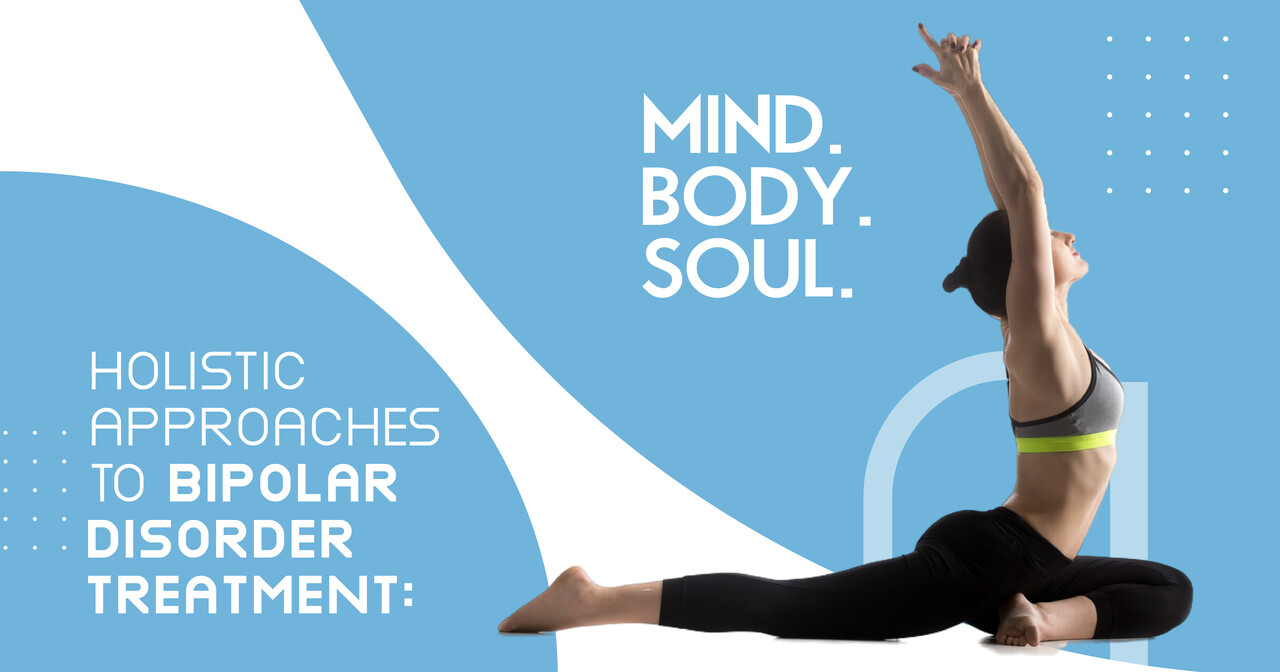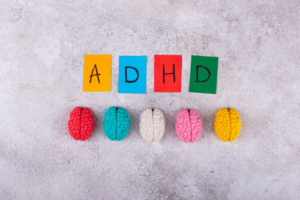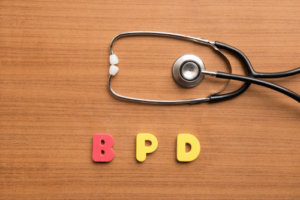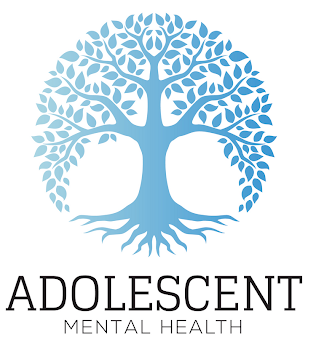Coping with bipolar disorder can be like navigating a rollercoaster of emotions, affecting not only your mood but also your overall wellness.
Although medications and therapy are crucial for symptom management, many individuals also value holistic approaches that consider the mind, body, and soul.
In this article, we’ll explore holistic treatments for bipolar disorder, providing insight and support for those managing this challenging condition.
Nurturing the Mind: Psychological Therapies
Cognitive-behavioral therapy (CBT):
Understanding Thought Patterns: CBT assists individuals in recognizing and challenging negative thought patterns and beliefs that contribute to mood swings and behavioral changes.
Developing Coping Strategies: Through CBT, individuals acquire practical coping techniques to handle stress, manage emotions, and prevent relapse.
Mindfulness-Based Therapies:
Living in the Present Moment: Therapies like mindfulness-based cognitive therapy (MBCT) and mindfulness-based stress reduction (MBSR) guide individuals to cultivate awareness and acceptance of their thoughts, emotions, and experiences.
Reducing Stress and Anxiety: By engaging in mindfulness practices, individuals can lower stress and anxiety levels, enhance self-awareness, and boost overall well-being.
Nourishing the Body: Lifestyle Interventions
Balanced Nutrition:
Eating for Stability: Consuming a well-rounded diet of fruits, vegetables, whole grains, lean proteins, and healthy fats can promote mood stability and overall well-being.
Avoiding Triggers: Some individuals might discover that certain foods or substances, like caffeine or alcohol, worsen bipolar symptoms and should be limited or avoided.
Regular Exercise:
Boosting Mood and Energy: Regular physical activity, such as walking, cycling, or yoga, can enhance mood, raise energy levels, and alleviate symptoms of depression and anxiety.
Promoting Sleep: Exercise can also facilitate better sleep, crucial for managing bipolar symptoms and maintaining overall health.
Nurturing the Soul: Spiritual and Creative Practices
Spiritual Connection
Finding Meaning and Purpose: Spiritual practices, such as meditation, prayer, or connection with nature, can provide comfort, guidance, and a sense of purpose for individuals with bipolar disorder.
Seeking Support: Connecting with a spiritual community or looking forward to guidance from a spiritual leader can offer support and encouragement on the healing journey.
Creative Expression
Exploring Emotions: Creative activities such as art, music, writing, or dance can provide a healthy outlet for expressing emotions, processing experiences, and fostering self-discovery.
Finding Joy: Engaging in creative pursuits can bring joy, fulfillment, and a sense of accomplishment, even during challenging times.
FAQs About Holistic Bipolar Disorder Treatment
How practical are holistic approaches for bipolar disorder treatment?
While research on holistic approaches for bipolar disorder is ongoing, many individuals find that incorporating holistic practices into their treatment plan can complement traditional therapies and improve overall well-being. It’s essential to collaborate with healthcare professionals to identify the most suitable approach for each person’s unique needs.
Can holistic approaches replace medication for bipolar disorder?
Holistic approaches should not replace medication prescribed by a healthcare provider for bipolar disorder management. Instead, holistic practices can be used with medication and therapy to support overall well-being and symptom management.
Are there risks associated with holistic approaches to bipolar disorder treatment?
While holistic approaches such as mindfulness and lifestyle interventions are generally safe, it’s essential to approach them mindfully and consult with healthcare professionals, especially if considering dietary supplements or alternative therapies. Some practices may interact with medications or exacerbate symptoms in specific individuals.
How can I incorporate holistic approaches into my bipolar disorder treatment plan?
To incorporate holistic approaches into your bipolar disorder treatment plan, start by exploring different practices and identifying those that resonate with you. Work with your healthcare provider or therapist to develop a personalized plan that integrates holistic practices alongside traditional therapies.
Where can I find additional support for holistic bipolar disorder treatment?
There are many resources available for individuals seeking support for holistic bipolar disorder treatment, including support groups, online forums, and integrative healthcare providers. Explore local and online resources to connect with others on a similar journey and access additional support and guidance.
Conclusion: Embracing Holistic Healing
Embracing holistic approaches to bipolar disorder treatment can empower individuals to take an active role in their healing journey and cultivate a sense of balance, resilience, and well-being. By nurturing the mind, body, and soul through psychological therapies, lifestyle interventions, and spiritual and creative practices, individuals can find more excellent stability, fulfillment, and joy in life despite the challenges of bipolar disorder.










